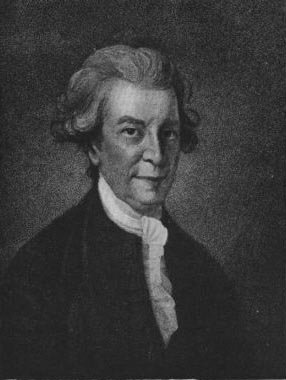Thomas Sheridan (actor) facts for kids
Thomas Sheridan (born 1719, died 1788) was an Irish actor and teacher. He was famous for helping people learn to speak well. This was part of a movement called elocution, which focused on clear and powerful speaking. He earned his master's degree from Trinity College in Dublin. He was also the godson of the famous writer Jonathan Swift. Thomas Sheridan wrote a special dictionary of the English language in 1780. He was married to Frances Chamberlaine and they had several children. His sons, Richard Brinsley Sheridan and Charles Francis Sheridan, became well-known. His daughters, Alicia and Betsy Sheridan, were also writers.
Contents
Early Life and Acting Career
Thomas Sheridan was the third son of Dr Thomas Sheridan, who was a close friend of Jonathan Swift. Thomas went to Westminster School in London for a short time. Because his father had money problems, he finished his schooling in Dublin. In 1739, he earned his first degree from Trinity College, Dublin.
He started acting by playing the main character in Shakespeare's Richard III in Dublin. Soon, he became the most popular actor in Ireland. People often compared him to the famous English actor David Garrick. Besides acting, Thomas also wrote a play called The Brave Irishman or Captain O'Blunder, which first opened in 1738. In the 1740s, he became the manager of a theatre in Dublin.
Teacher and Writer
In 1758, Thomas Sheridan moved to England with his family. He mostly stopped acting, but still managed theatre companies and sometimes played small roles. In England, he became a very successful teacher. He gave popular lectures on how to speak well.
In 1762, Sheridan published a book called Lectures on Elocution. He then wrote other important books. These included A Plan of Education (1769) and Lectures on the Art of Reading (1775). His most famous dictionary, A General Dictionary of the English Language, came out in 1780. All these books were based on his earlier ideas from British Education (1756). In this book, he argued that poor education led to many problems in Britain. He believed that learning to speak well and studying English could help fix these issues.
Sheridan lived in London for several years. Later, he moved to Bath and started a school. This school taught young gentlemen how to read, recite, and understand English grammar. When this school didn't work out, he returned to Dublin and the theatre in 1771. His son, Richard, later became a part-owner of the Theatre Royal, Drury Lane in London. Thomas then managed this theatre from 1778 to 1781.
Sheridan's Beliefs on Public Speaking
Thomas Sheridan strongly believed in the power of good public speaking. He wanted to teach students how to speak correctly and effectively. He thought the British education system ignored the art of speaking, also known as elocution or rhetorical delivery.
In his book British Education, Sheridan said that bad public speaking, especially in churches, was hurting religion itself. He was sure that studying elocution would help improve all forms of art. He wrote that sermons from the pulpit "must either effectually support religion... or be the principal means of its destruction."
Sheridan believed that to convince someone, you must first show that you truly believe what you are saying. He felt this came from the "tones of voice" and matching facial expressions and body language. He thought that elocution was not just about the voice. It included the whole person: their face, gestures, posture, and movement.
A Course of Lectures on Elocution
This book, published in 1762, is often seen as Sheridan's most important work. He often complained about the poor state of public speaking in his time. He wrote that "so low is the state of elocution amongst us, that a man who is master even of these rudiments of rhetoric, is comparatively considered, as one of excellent delivery."
A key part of Sheridan's work was his focus on the importance of "tones" in speaking. These tones are the expressive ways you can use your voice. Sheridan believed they were vital for convincing people. He stated that tones for emotions like sorrow, joy, or anger are the same in all nations. This means they can create similar feelings in us, even if we don't understand the words. He felt that how a message was said was as important as the message itself. He gave an example of someone saying, "My rage is rouzed to a pitch of frenzy..." in a calm voice. This showed that the tone of voice must match the words for the message to be powerful.
Sheridan aimed to add what he felt John Locke had missed in his ideas about language. He believed Locke had not fully explored the "nobler branch of language," which includes the signs of our inner feelings.
Selected Plays
- Captain O'Blunder
 | Tommie Smith |
 | Simone Manuel |
 | Shani Davis |
 | Simone Biles |
 | Alice Coachman |


